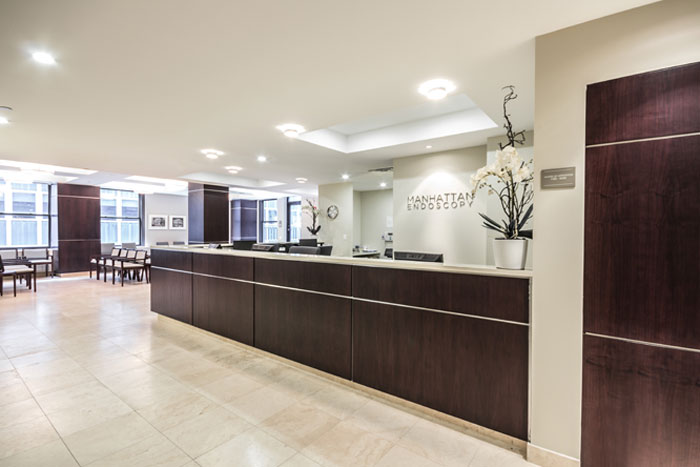Procedures
 Dr. Krumholz performs most procedures at Manhattan Endoscopy Center, a state-of-the-art outpatient surgical facility, located at 535 Fifth Avenue, which now participates with most major insurance carriers for anesthesia and facility services. For more information regarding Manhattan Endoscopy Center, please visit their website at http://www.manhattanendo.com.
Dr. Krumholz performs most procedures at Manhattan Endoscopy Center, a state-of-the-art outpatient surgical facility, located at 535 Fifth Avenue, which now participates with most major insurance carriers for anesthesia and facility services. For more information regarding Manhattan Endoscopy Center, please visit their website at http://www.manhattanendo.com.
Dr. Krumholz and his proficient staff help patients plan carefully in advance of all procedures, and support them through this important process. Questions about anesthesia and insurance matters will be comprehensively addressed to help ensure patients’ peace of mind. After a procedure, Dr. Krumholz will advise whether any subsequent tests are necessary, and discuss follow-up screening intervals after a colonoscopy.
What is Colonoscopy?
Colonoscopy is recommended for colon cancer screening, and for evaluation of symptoms such as change in bowel habits, and rectal bleeding. Colorectal cancer is the third leading cause of cancer deaths in the United States. Every year approximately 150,000 new cases of colon cancer are detected in the United States, and 50,000 people die from the disease. Colonoscopy allows for detection and removal of polyps which are usually benign, and thus prevents the development of colon cancer. Dr. Krumholz’s goal is to offer his patients a careful and more thorough examination to help reduce cancer risk, and he adheres to standards of quality that aim to achieve the best results. His rate of polyp (adenoma) detection, time spent visualizing the lining of the colon, and complete exam statistics, exceed national averages.
What is Upper Endoscopy (EGD)?
An upper endoscopy helps a physician evaluate symptoms such as abdominal pain, swallowing difficulty, nausea, and determining the cause of upper gastrointestinal bleeding. It is the best test for evaluating problems such as ulcers and tumors of the upper GI tract. During an endoscopy, biopsies are routinely obtained to distinguish between benign and cancerous tissue, and to rule out other problems such as infection of the stomach and celiac disease.